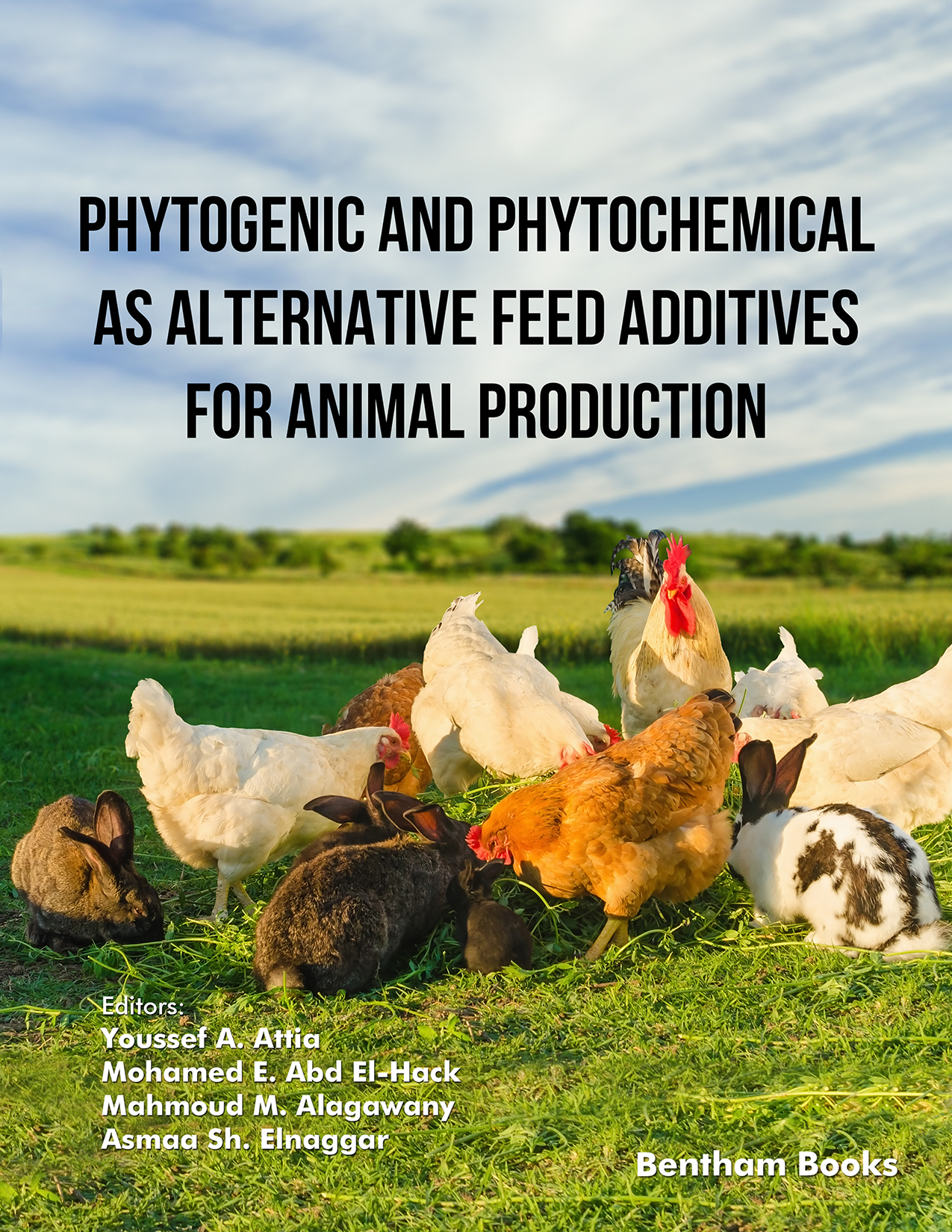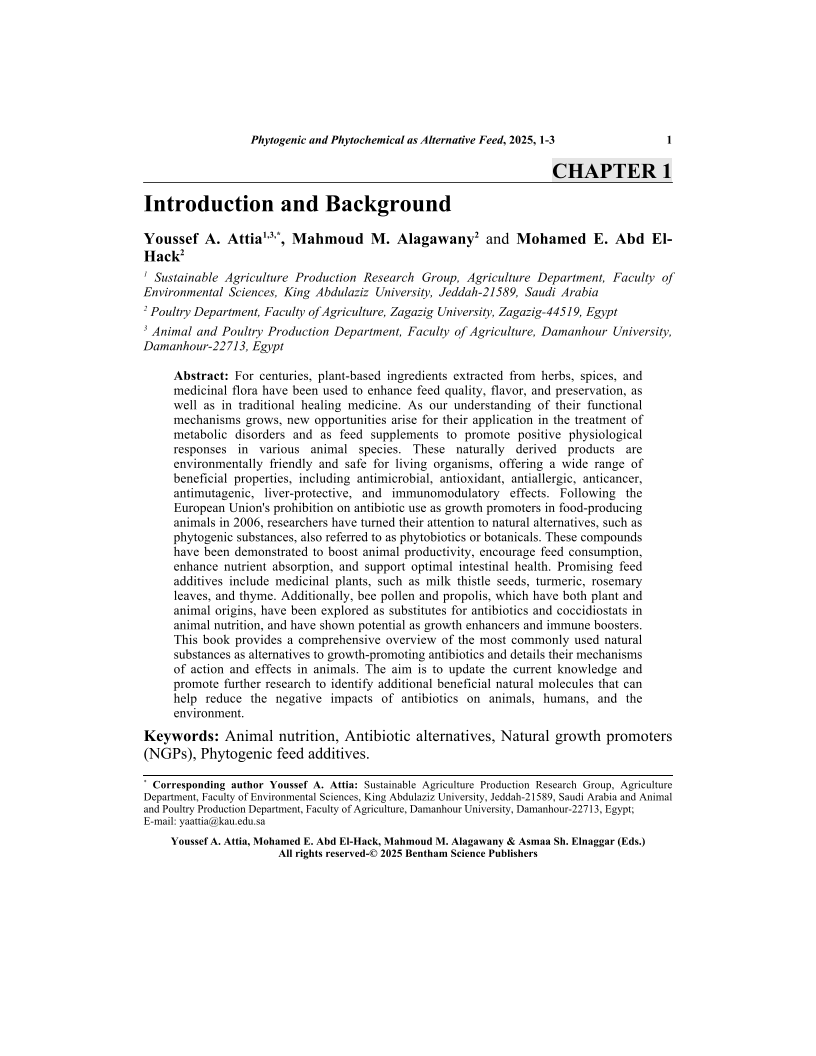Introduction and Background

- Authors: Youssef A. Attia1, Mahmoud M. Alagawany2, Mohamed E. Abd ElHack3
-
View Affiliations Hide Affiliations1 Sustainable Agriculture Production Research Group, Agriculture Department, Faculty of Environmental Sciences, King Abdulaziz University, Jeddah 21589, Saudi Arabia 2 Poultry Department, Faculty of Agriculture, Zagazig University, Zagazig-44519, Egypt 3 Poultry Department, Faculty of Agriculture, Zagazig University, Zagazig-44519, Egypt
- Source: Phytogenic and Phytochemical as Alternative Feed Additives for Animal Production , pp 1-3
- Publication Date: March 2025
- Language: English
Introduction and Background, Page 1 of 1
< Previous page | Next page > /docserver/preview/fulltext/9789815322767/chapter-1-1.gif
For centuries, plant-based ingredients extracted from herbs, spices, and medicinal flora have been used to enhance feed quality, flavor, and preservation, as well as in traditional healing medicine. As our understanding of their functional mechanisms grows, new opportunities arise for their application in the treatment of metabolic disorders and as feed supplements to promote positive physiological responses in various animal species. These naturally derived products are environmentally friendly and safe for living organisms, offering a wide range of beneficial properties, including antimicrobial, antioxidant, antiallergic, anticancer, antimutagenic, liver-protective, and immunomodulatory effects. Following the European Union's prohibition on antibiotic use as growth promoters in food-producing animals in 2006, researchers have turned their attention to natural alternatives, such as phytogenic substances, also referred to as phytobiotics or botanicals. These compounds have been demonstrated to boost animal productivity, encourage feed consumption, enhance nutrient absorption, and support optimal intestinal health. Promising feed additives include medicinal plants, such as milk thistle seeds, turmeric, rosemary leaves, and thyme. Additionally, bee pollen and propolis, which have both plant and animal origins, have been explored as substitutes for antibiotics and coccidiostats in animal nutrition, and have shown potential as growth enhancers and immune boosters. This book provides a comprehensive overview of the most commonly used natural substances as alternatives to growth-promoting antibiotics and details their mechanisms of action and effects in animals. The aim is to update the current knowledge and promote further research to identify additional beneficial natural molecules that can help reduce the negative impacts of antibiotics on animals, humans, and the environment.
-
From This Site
/content/books/9789815322767.chapter-1dcterms_subject,pub_keyword-contentType:Journal -contentType:Figure -contentType:Table -contentType:SupplementaryData105

